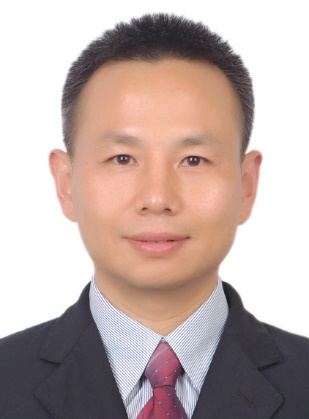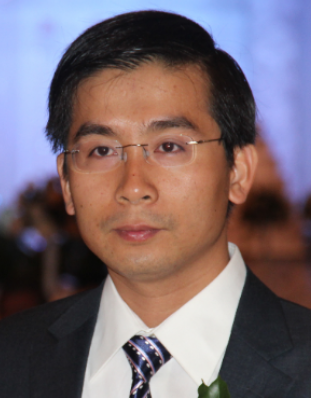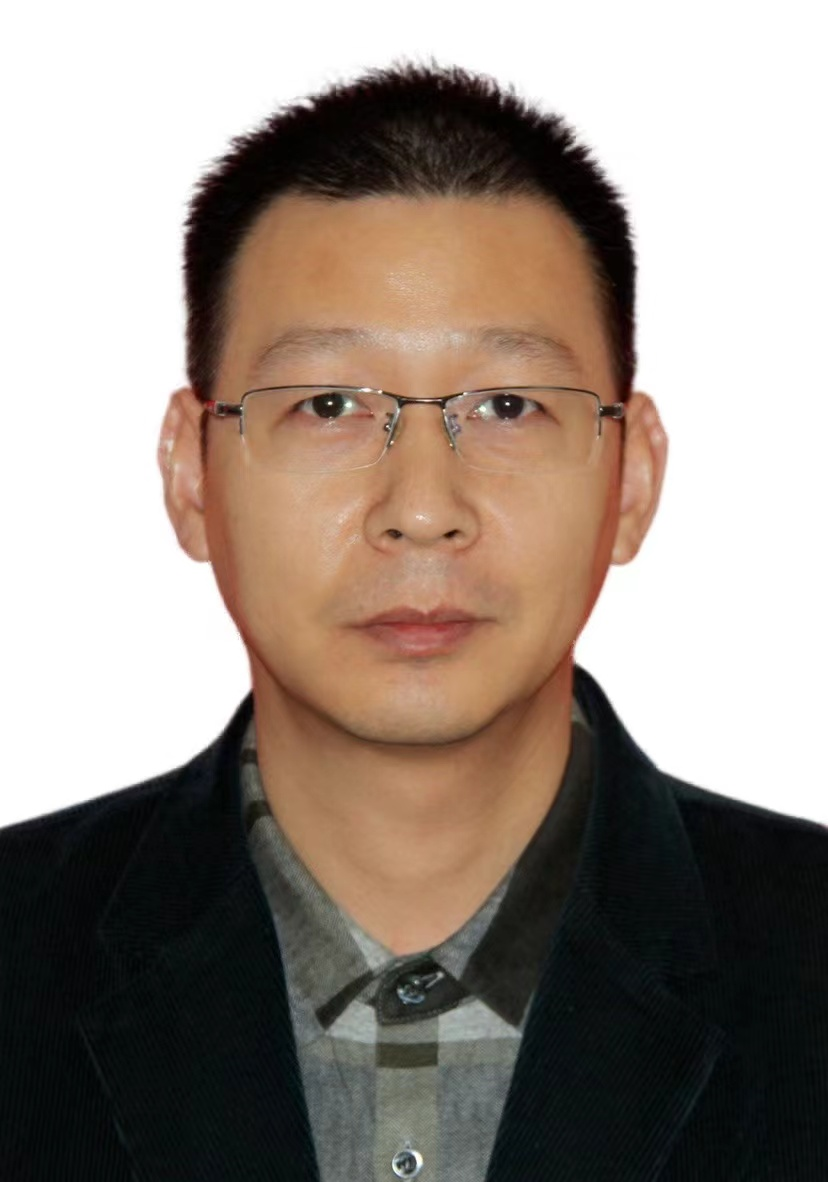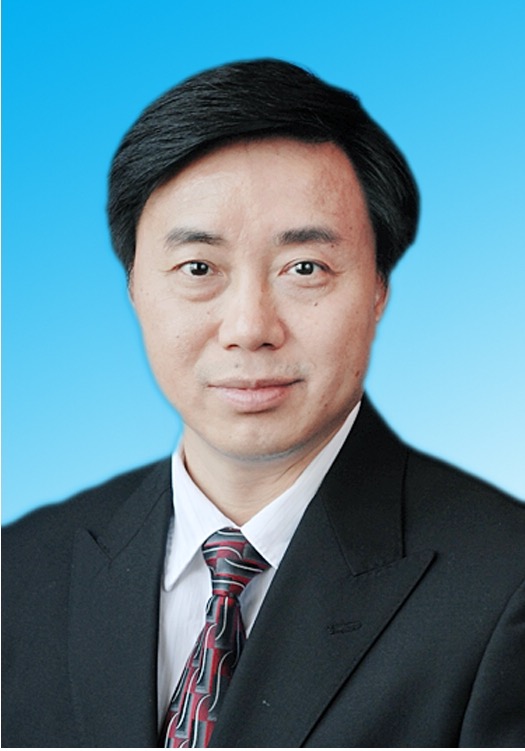
Speakers
Keynote Speaker |
| Professor Geyong Min, University of Exeter, U.K. IEEE Fellow Bio:Professor Geyong Min is a Chair in High Performance Computing and Networking in the Department of Computer Science at the University of Exeter, UK. His research interests include Mobile Internet, Cloud and Edge Computing, Artificial Intelligence, Systems Modelling and Performance Engineering. His recent research has been supported by European Horizon-2020, UK EPSRC, Royal Society, Royal Academy of Engineering, and industrial partners. He has published more than 200 research papers in leading international journals including IEEE/ACM Transactions on Networking, IEEE Journal on Selected Areas in Communications, IEEE Transactions on Computers, IEEE Transactions on Parallel and Distributed Systems, and IEEE Transactions on Wireless Communications, and at reputable international conferences, such as SIGCOMM-IMC, INFOCOM, and ICDCS. He is an Associated Editor of several international journals, e.g., IEEE Transactions on Computers, and IEEE Transactions on Cloud Computing. He served as the General Chair or Program Chair of a number of international conferences in the area of Information and Communications Technologies. Title:Resource Deployment and Service Optimization for Intelligent Edge Networks Abstract:Intelligent Edge Networks are rapidly emerging as critical infrastructure supporting the transformation toward a more intelligent society. However, the distributed and heterogeneous nature of edge resources has posed several key challenges, including high deployment costs, severe resource fragmentation, and low resource utilization. To address these issues and enhance both system performance and service quality in Intelligent Edge Networks, this talk explores resource deployment and service optimization strategies from three core dimensions: edge computing, network resources, and edge applications. Specifically, it presents a collaborative edge computing deployment framework, a hybrid architecture that integrates both static and dynamic edge servers, and a task-aware fine-grained service placement strategy. These approaches significantly improve resource allocation efficiency and service performance, offering practical pathways and technical support for the large-scale development and deployment of Intelligent Edge Networks. |
Keynote Speaker |
| Professor Trung Q. Duong, Memorial University of Newfoundland, Canada IEEE Fellow, IET Fellow, CAE Fellow, EIC Fellow, AAIA Fellow BIO:Dr. Trung Q. Duong (IEEE Fellow, IET Fellow, CAE Fellow, EIC Fellow, and AAIA Fellow) is a Canada Excellence Research Chair and Full Professor at Memorial University of Newfoundland, Canada. He is also an adjunct professor at Queen’s University Belfast, UK and a visiting professor under eminent scholar program at Kyung Hee University, South Korea. His current research interests include quantum optimisation and machine learning in wireless communications. He is an author/co-author of 650+ publications with 24,000+ citations and h-index 83. He has served as an Editor for many reputable IEEE journals (IEEE Trans on Wireless Communications, IEEE Trans on Communications, IEEE Trans on Vehicular Technology, IEEE Communications Surveys & Tutorials, IEEE Communications Letters, and IEEE Wireless Communications Letters) and has been awarded best paper awards in many flagship conferences including IEEE ICC 2014, IEEE GLOBECOM 2016, 2019, and 2022. He was the only UK-based researcher awarded both the Research Fellowship and Research Chair from the Royal Academy of Engineering. In 2017, he was awarded the Newton Prize from the UK government. He is currently the Editor-in-Chief of IEEE Communications Surveys & Tutorials and an IEEE ComSoc Distinguished Lecturer. He is a fellow of the Institute of Electrical and Electronics Engineers (IEEE), the Institution of Engineering and Technology (IET), the Canadian Academy of Engineering (CAE), the Engineering Institute of Canada (EIC), and the Asia-Pacific Artificial Intelligence Association (AAIA). He is the Founding Director of Quantum Communications and Computing Center (QC3). Title:Quantum Machine Learning and Optimization for 6G Networks Abstract:Quantum computing uses the concept of quantum mechanics to offer a massive leap forward in relations to solving complex computation problems. Hybrid quantum-classical machine learning algorithms can significantly enhance the processing efficiency and exponentially computational speed-up, highly capable of guaranteeing high QoS requirements of 6G networks. This talk presents the state-of-the-art in quantum machine learning and optimization and provide a comprehensive overview of its potential, via machine learning approaches. Furthermore, this talk introduces quantum-inspired machine learning/optimization applications for 6G networks in terms of 6G channel estimation and RF fingerprinting considering their enabling technologies and potential challenges. Finally, some dominating research issues and future research directions for the quantum-inspired machine learning/optimization in 6G networks are elaborated. |
| Keynote Speaker | |
| Professor Xinghua Li, Xidian University, China National Science Fund for Distinguished Young Scholars BIO:He is a Level-2 Professor at Xidian University, a Recipient of the National Science Fund for Distinguished Young Scholars, and enjoys the Special Government Allowance of the State Council. Currently, he serves as Vice Dean of the School of Cyber Science and Engineering, Executive Deputy Director of the Engineering Research Center of Big Data Security (Ministry of Education), Deputy Director of the National Key Laboratory of Integrated Services Networks for Air-Space-Ground Integration, and an expert for the key special project "Cyberspace Security Governance" under the 14th Five-Year Plan of the Ministry of Science and Technology. His awards and honors include: the Top 10 National Excellent Teachers in Cyber Security Award (2019, awarded by the Cyberspace Administration of China), the First Prize of Shaanxi Provincial Technological Invention Award (Ranked 1st), and the Gold Award and Silver Award of the Shaanxi Science and Technology Workers' Innovation and Entrepreneurship Competition (both Ranked 1st). He has successively presided over key projects of the National Natural Science Foundation of China, as well as projects under the National Key R&D Program. He holds more than 50 authorized national invention patents, 5 international PCT patents, and 2 U.S. invention patents. He has also participated in formulating a number of international and national standards. He has published over 100 academic papers in prestigious venues including CCS and Usenix Security, been listed in the World's Top 2% Scientists List, and published 4 monographs. Title: Security Protection of Drone Swarms Abstract:This report mainly introduces the background of drone swarms and related attack incidents, conducts an analysis of the security risks of drone swarms, presents their main security requirements, and introduces the work carried out by the team in this field. |
| Keynote Speaker | |
| Professor Xindong Wu, Hefei University of Technology, China IEEEFellow, AAAS Fellow Bio: Xindong Wu is Director and Professor of the Key Laboratory of Knowledge Engineering with Big Data (sponsored by the Ministry of Education of China), Hefei University of Technology, China. His research interests include big data analytics, data mining and knowledge engineering. He received his Bachelor's and Master's degrees in Computer Science from the Hefei University of Technology, China, and his Ph.D. degree in Artificial Intelligence from the University of Edinburgh, Britain. He is a Foreign Member of the Russian Academy of Engineering, and a Fellow of IEEE and the AAAS (American Association for the Advancement of Science). Dr. Wu is the Steering Committee Chair of the IEEE International Conference on Data Mining (ICDM), and the Editor in-Chief of Knowledge and Information Systems (KAIS, by Springer). He was the Editor-in-Chief of the IEEE Transactions on Knowledge and Data Engineering (TKDE) between 2005 and 2008 and Co-Editor-in-Chief of the ACM Transactions on Knowledge Discovery from Data Engineering between 2017 and 2020. He served as a program committee chair/co-chair for ICDM 2003 (the 3rd IEEE International Conference on Data Mining), KDD 2007 (the 13th ACM SIGKDD International Conference on Knowledge Discovery and Data Mining), CIKM 2010 (the 19th ACM Conference on Information and Knowledge Management), and ICBK 2017 (the 8th IEEE International Conference on Big Knowledge). Title: Bidirectional Enhancement with a Knowledge Ocean for Large Language Models and Knowledge Graphs Abstract: Large language models (LLMs), such as GPT4o and DeepSeek, are making new waves in the fields of natural language processing and artificial intelligence, due to their emergent ability and generalizability. However, LLMs are black-box models, which often fall short of capturing and accessing factual knowledge. In contrast, Knowledge Graphs (KGs), Wikipedia, and Huapu for example, are structured knowledge models that explicitly store rich factual knowledge. KGs can enhance LLMs by providing external knowledge for inference and interpretability. Meanwhile, KGs are difficult to construct and evolve by nature, which challenges the existing methods in KGs to generate new facts and represent unseen knowledge. Therefore, it is complementary to unify LLMs and KGs together and, simultaneously, leverage their advantages. In this talk, we present CHACE-KO (a Connected, Hybrid, Accommodating, Contained, and Evolving Knowledge-Ocean, https://ko.zhonghuapu.com/EN) that synergizes knowledge graphs with large language models, and performs bidirectional reasoning driven by both data and knowledge. |
| Keynote Speaker | |
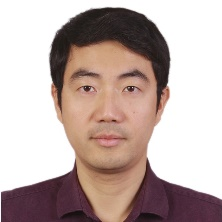 | Professor Huanhuan Chen, University of Science and Technology of China, China IEEE Fellow Bio: Huanhuan Chen is an IEEE Fellow. He received his bachelor's degree from the University of Science and Technology of China in 2004 and his doctorate from the University of Birmingham in 2008. He is currently a professor at the School of Computer Science at the University of Science and Technology of China. He has published over 200 papers in important international academic journals such as IEEE Transactions on Neural Networks and Learning Systems, IEEE Transactions on Knowledge and Data Engineering, and IEEE Transactions on Evolutionary Computation, as well as in important international academic conferences in the field of artificial intelligence, such as IJCAI, KDD, and AAAI. He received the 2024 "Wang Kuancheng Education Award", the 2022 Anhui Province Teaching Achievement First Prize, and the "Outstanding Mentor Award" of the Chinese Academy of Sciences. Among his scientific research achievements, he has won the Second Prize in Natural Sciences of the Ministry of Education, the Young Scientist Award of the International Neural Network Society, and the ACM China Rising Star Nomination Award. His published article won the IEEE Transactions on Neural Networks Best Paper Award (the only paper published that year to receive this award). His doctoral dissertation received the IEEE Computational Intelligence Society Outstanding Doctoral Dissertation Award and the British Computer Society Outstanding Doctoral Dissertation Award in the UK, as well as the IEEE Transactions on Neural Networks and Learning Systems Outstanding Associate Editor Award and the TETCI Outstanding Associate Editor Award. As project leader, he led the Science and Technology Innovation 2030-New Generation Artificial Intelligence Major Project "Research on Key Technologies for Cross-Media Causal Inference and Decision-making"; "Interaction Mechanisms in Knowledge Navigation," one of five projects in the first batch of the National Key R&D Program "Research on Basic Theory and Applications of Big Data Knowledge Engineering"; a National Natural Science Foundation of China Major Research Program (with rolling support); a National Natural Science Foundation of China Key Project; a National Natural Science Foundation of China General Project; a National Natural Science Foundation of China Cooperation and Exchange Project with the Royal Society; and a Major Special Project of Anhui Province. Title: Causal Learning and its Applications Abstract: In recent years, causal learning has gradually become a research hotspot in artificial intelligence. The talk introduces the content related to causal discovery, causal inference, and decision-making. It will provide an overview of the development progress and the latest technologies in this field. Through application cases in several scenarios, the talk will demonstrate the robustness and interpretability advantages of causal learning. |
| Keynote Speaker | |
 | Professor Chengwen Xing, Beijing Institute of Technology, China National Science Fund for Distinguished Young Scholars BIO:Chengwen Xing is a Distinguished Professor at Beijing Institute of Technology, and a recipient of the National Science Fund for Distinguished Young Scholars of China. He received the B.Eng. degree from Xidian University, Xi’an, China, in 2005 and the Ph.D. degree from the University of Hong Kong, Hong Kong, China, in 2010. After completing his doctorate, he has been with the School of Information and Electronics, Beijing Institute of Technology, Beijing, China. His research focuses on array signal processing for space-air communications, and has published more than 100 papers in IEEE Transactions, and has won 2019 Second Prize of National Technology Invention, 2018 First Prize of Technology Invention of China Institute of Communications, 2020 First Prize of Civil Aviation Science and Technology of China Air Transport Association. Title: Signal Processing for Space-Air Information Networks Abstract:Space-Air information networks are characterized by long-distance communications, wide scope of coverage and high data rates, with important economic value and security significance endowed. To realize massive data communications, strong anti-jamming and anti-interception capability under severe resource constraints, the following three research categories are investigated: (1) Matching between mathematical expression of Space-Air array signal and multi-type Space-Air equipment (2) Matching between implementation of Space-Air array signal processing and severely limited resources on Space-Air platform (3) Matching between capability of Space-Air array signal processing and diverse requirements of Space-Air communication. |
